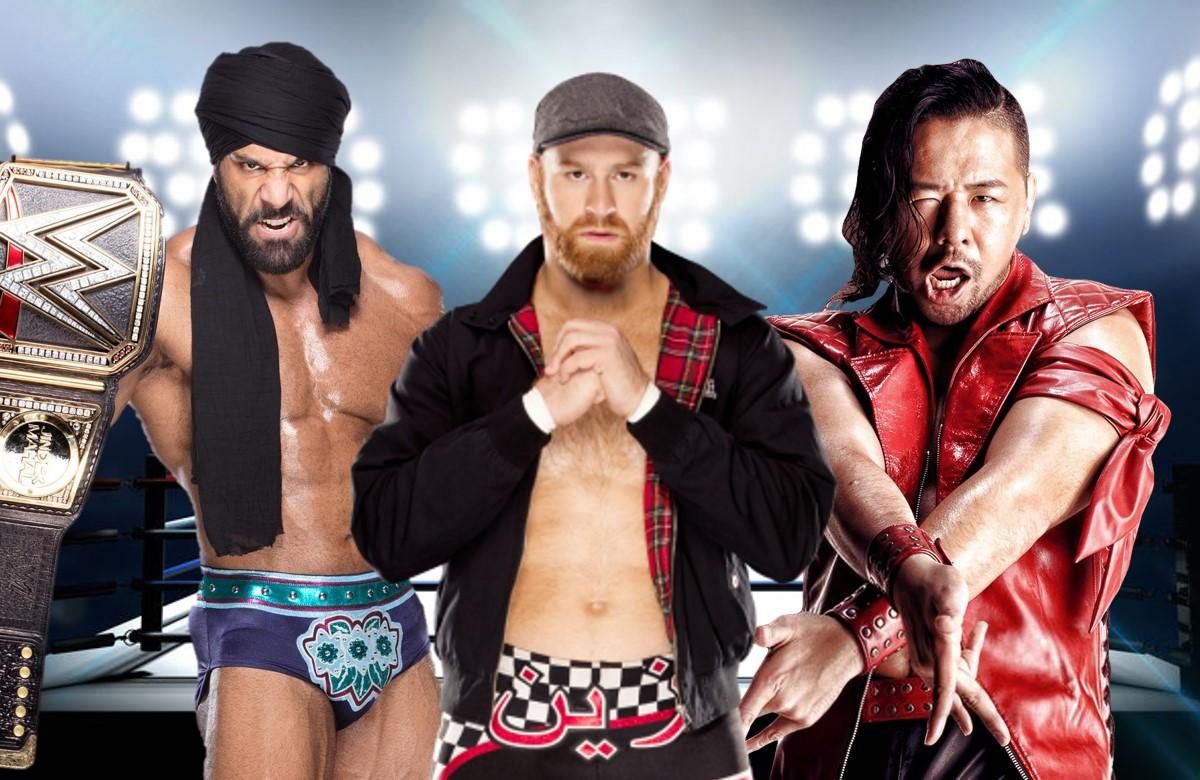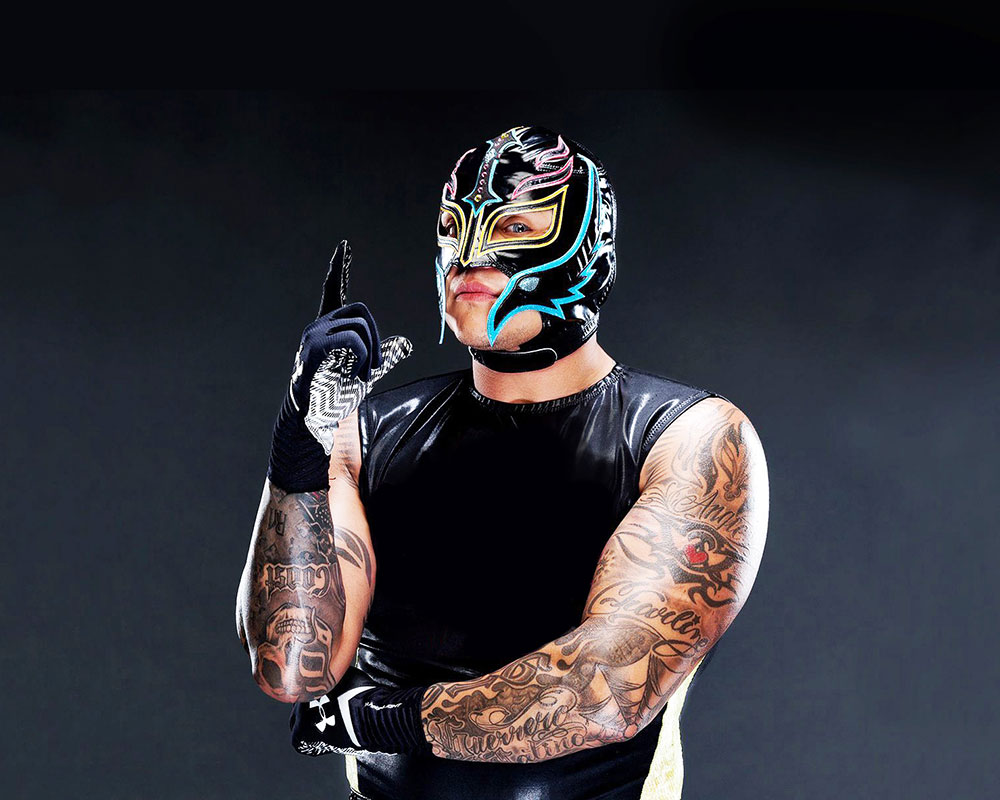On April 27, 2018, the WWE made history putting on the Greatest Royal Rumble event in Jeddah, Saudi Arabia. The event was the first in a 10-year strategic multi-platform partnership between WWE and the Saudi General Sports Authority in support of Saudi Vision 2030, Saudi Arabia’s social and economic reform program.
Standing in the ring that night was Mansoor Al Shehail, an unsigned independent wrestler born in Riyadh, who had been undergoing try-out trials in The Kingdom earlier that week. He grab the microphone and announced that he was the future of the industry, that Saudi Arabia was the future of the industry.
Flash forward 18 months, and Al Shehail – who now goes by ‘Mansoor’ – has become the first Saudi to be signed to a WWE contract for the NXT brand, after impressing in the company’s developmental structure. Esquire Middle East caught up with the trailblazer on his latest trip to the region:
***
ESQUIRE: You are the first Saudi Arabian to join the WWE roster. Is there added pressure?
Mansoor: No, not really. I don’t really think about it much. I feel like the bigger the stage the more comfortable I feel. I enjoy the feeling of being in centre of the ring watched by tens of thousands of people. The first time that happened was at [the WWE live event] the Greatest Royal Rumble in Jeddah. I was not even part of the company and I was in the ring as part of the try-out in front of a packed stadium. I got on the microphone and spoke to the audience and, for some reason, it was the least amount of nerves I have ever had in wrestling. I’ve wrestled in front of crowds of fifty people in a school gym before, and that is always more nerve-racking.
How come?
I think because everything is scrutinized more. In front of a packed stadium or arena, there is a constant buzz in the air, so you don’t necessarily feel everything revolves around you, even though there are sixty thousand people looking at you! You kind of forget every individual person and just think there is a wall of people, a wall of energy. I don’t know why I’m getting so hippy about it, it’s very surreal! Being the first Saudi to be in WWE is huge, but because it is so big I can’t fully comprehend it. It’s a thing that has happened, I will always have that accolade and I just have to succeed as much as possible.

To non-wrestling fans, how do you explain what you do?
You know Marvel films, right? Well, Imagine Iron Man and Thanos had a fight, but instead of being on screen it was live in an arena. There’s no director, there are no cuts, no takes. Whatever happens, happens and you get to experience all of it. It’s a live spectacle of combat, performance and storytelling. It’s the greatest show on earth, and I want people who are seeing it for the first time to think “wow, I can’t believe I’ve been missing this my entire life.”
Why did you choose wrestling?
I grew up in Saudi, and my older brother Talal introduced me to the WWE and I was a huge fan. All my friends were wresting friends, and we played so much No Mercy on the Nintendo 64, and Smackdown! Here Comes The Pain on Playstation. It was always something that was in my life. It’s what I feel I was born to do. Someone once said to me, “why do you like wrestling more than acting, it’s the same thing.” It’s not the same thing, because there are a million Romeos and a million Juliets, but there is only one Jeff Hardy.
You moved to the US when you were young. What age was that?
I was 11. My mother is American, but there were times growing up that I was treated like I was too Saudi to be American, but also too American too be Saudi. Identity-wise, it’s something that I’ve always had to juggle with, but in terms of wrestling it was a huge advantage as they have wrestling schools all across the US so I was able to learn from a young age. At my WWE try out in Jeddah, I was the only person there with previous experience, so that was huge even though I was probably the least physically imposing person there.
“There are a million Romeos and a million Juliets, but there is only one Jeff Hardy”
So if you live in the US, how did you get to the Jeddah tryouts?
It was my first year wrestling full-time in the independent circuits in the US and had come to terms with the fact that I would probably have to do that for about 10 years until I potentially would make it to the big time. Then I got a call from my brother, Talal, saying “dude, WWE are doing try outs in Saudi Arabia! You have to come.’ I said, “what do you mean?” He explained how there was a deal with a company that they were going to put on big shows in Saudi and were looking to find Saudi talent. I thought that there was no way they would want me, they probably want body builders, or football players etc. Talal said, “if you pass this up, I am never going to forgive you” and then went and filled out the application for me anyway! The next day I got a call saying that they were going to fly me out from the US to Jeddah.
What is a WWE tryout like?
There is nothing like wrestling in terms of cardio and conditioning. You can go on the treadmill, you can run laps, but when you have to do deadlift sandbags and slam them, and literally carry people around the ring. That stuff is almost exclusive to what we do. At the tryouts I remember thinking ‘this is it, my one shot at my dream’. I have never put myself through so much. The physical intensity for the workouts we did in the ring were brutal, and as the only person there with previous wrestling experience I didn’t just need to do them well, I needed to do them better than anyone else.
So, now you’re signed to the NXT brand of WWE. How do you get yourself noticed?
It’s tough because there is some phenomenal talent in NXT and everyone is so ambitious. At the moment I’m still learning the company’s way and wrestling in mainly three-minute non-televised matches, but I have some tricks up my sleeve and when I’m given the opportunity to really let loose, I’m can do things that will make them think ‘maybe there’s more to this Mansour guy’.
What is the wrestling scene like here in the Middle East?
It’s very young. To my knowledge there are no real wrestling schools in the region, but I will say this, the more we can acclimate people in Saudi Arabia to the culture of professional wrestling, and integrate it to the culture of Saudi Arabia the more it’s going to be accepted and considered acceptable as a career. I believe that the WWE will build a performance centre [the company’s training facility] somewhere in the Middle East, most likely Saudi Arabia, for all Arab talent to develop and cultivate. It such an incredible market, it was always an underrated market.
“I truly do believe we will see women performing in Saudi Arabia in a WWE ring.”
What did your father think when you told him you wanted to be a wrestler?
He didn’t prevent it, he just didn’t necessarily respect it. His only previous experience was going to a wrestling show in the ’80s in the US where big muscular Americans would beat up evil Muslim characters. But when he came to the recent shows in Jeddah and Riyadh, he was on his feet cheering – not only because he got to see his son, but because a Saudi was presented in a positive light and not as a villain. That’s what I want to do for an entire generation of Saudis who might not necessarily think that wrestling should be something respectable or even acceptable. Eventually it will happen.
How big a cultural impact has the first set of WWE events Saudi had?
People have a lot of opinions about the Saudi shows, in terms of cultural impact that can only happen when the culture is more familiar with what wrestling is. My nieces, who live in Riyadh, are big wrestling fans, and I want them to be able to go to wrestling shows and see the women wrestlers perform. We saw it in Abu Dhabi with Sasha Banks and Alexa Bliss, but progress is like a staircase, you can’t jump every step. When it comes to a country’s culture you have to slowly integrate. Personally, I truly do believe we will see women performing in Saudi Arabia in a WWE ring one day.



